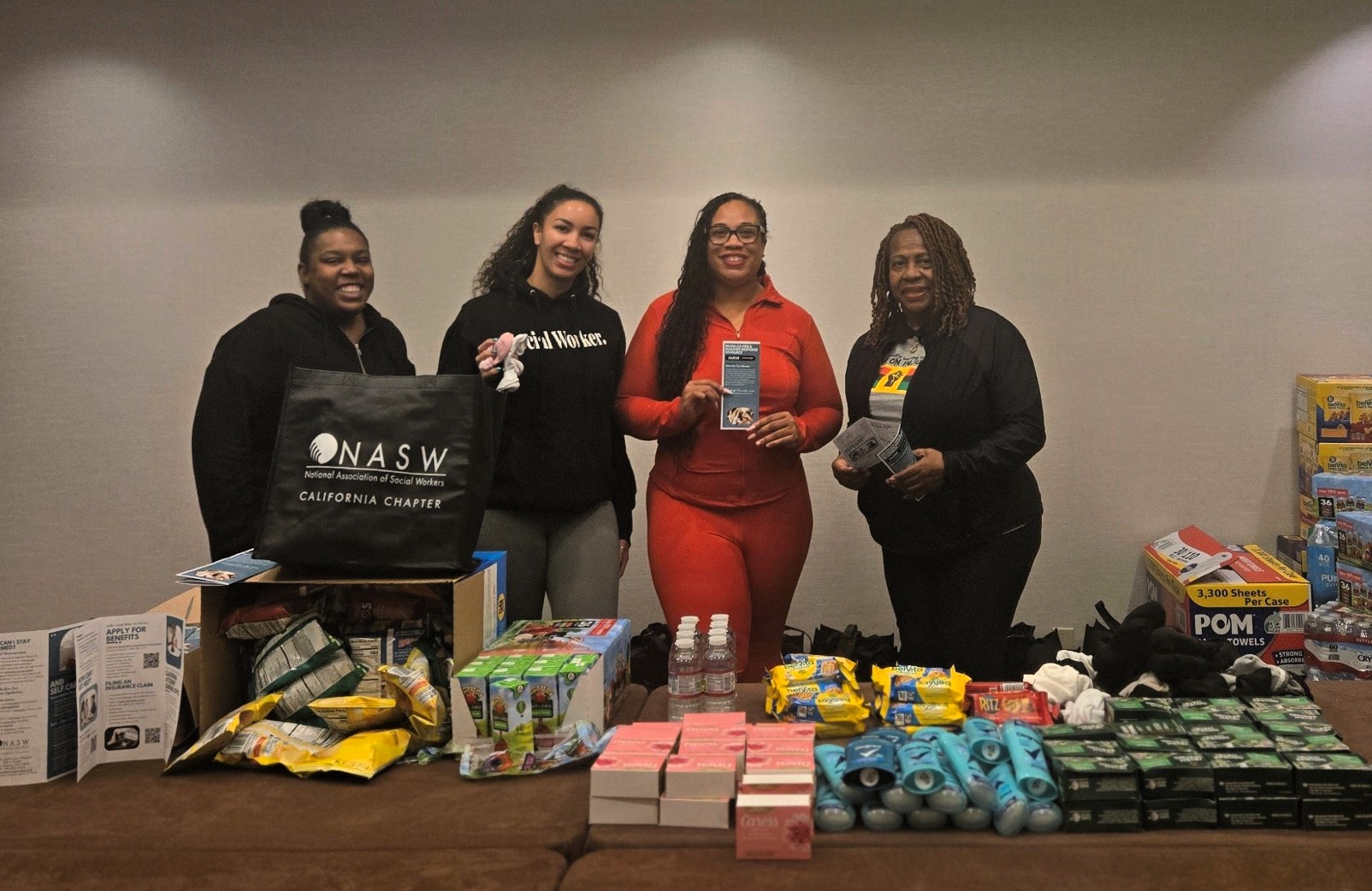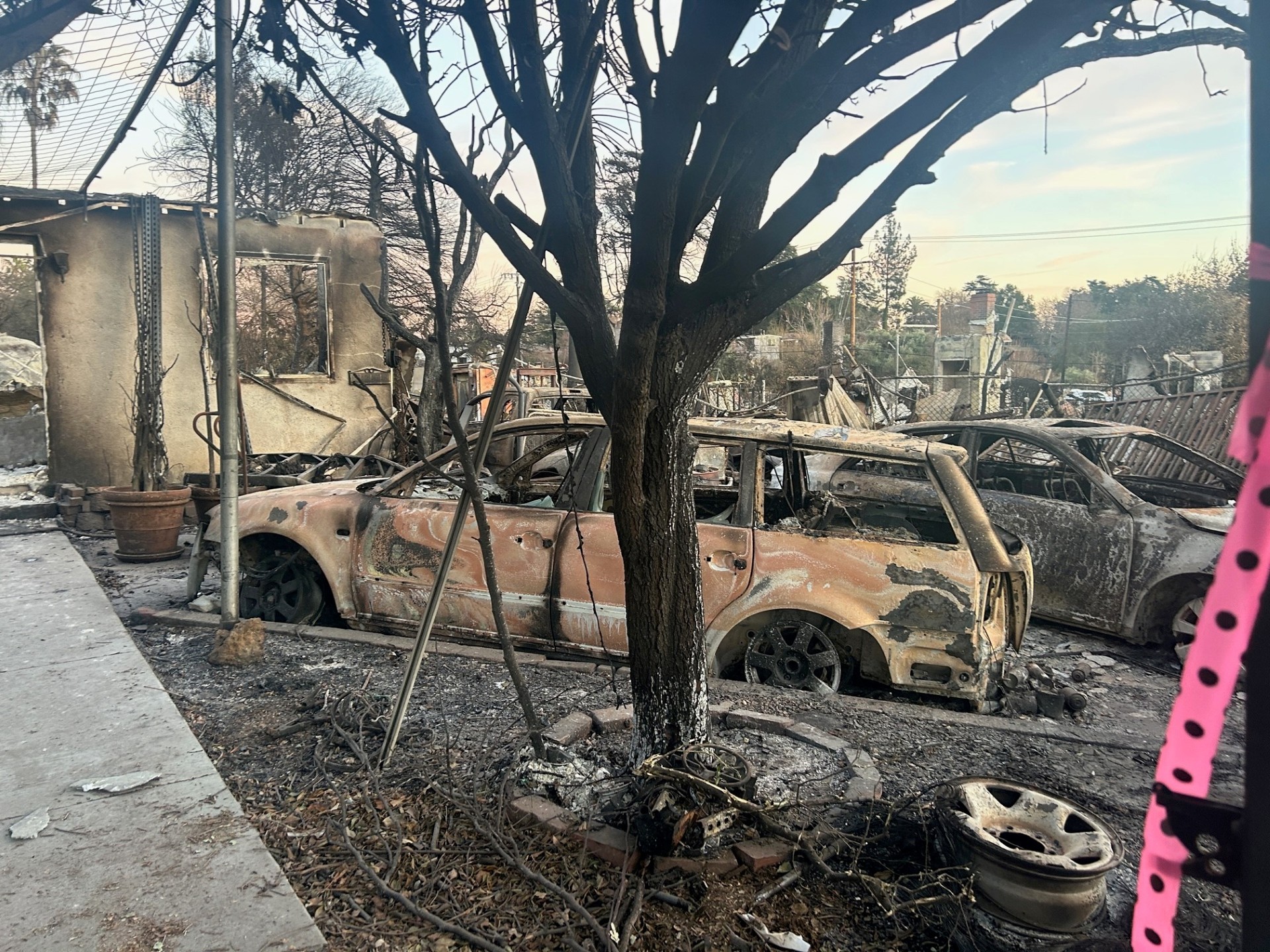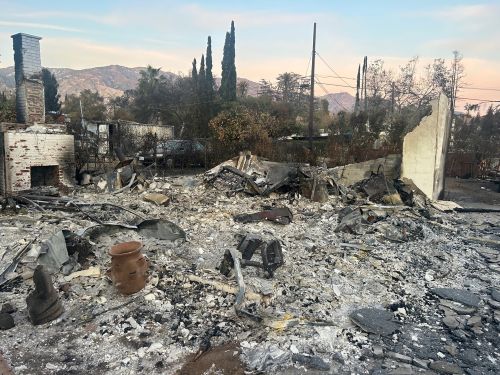 NASW-California hosted a space at the Marriott Long Beach during the wildfires and organized donations for people in need. From left: Dr. Teauania Charles, NASW-California director of Membership and Communications; Dr. Marya Wright, NASW-California Region C assistant regional director; Kimberly Warmsley, NASW-California executive director; and Dr. Gwen Bouie-Haynes, executive director of NASW’s Mississippi and Alabama chapters.
NASW-California hosted a space at the Marriott Long Beach during the wildfires and organized donations for people in need. From left: Dr. Teauania Charles, NASW-California director of Membership and Communications; Dr. Marya Wright, NASW-California Region C assistant regional director; Kimberly Warmsley, NASW-California executive director; and Dr. Gwen Bouie-Haynes, executive director of NASW’s Mississippi and Alabama chapters.
In January, a series of destructive wildfires hit California’s Los Angeles area, killing at least 29 people, forcing more than 200,000 to evacuate, and destroying or damaging more than 18,000 homes and structures.
Most of the damage was from the two largest fires: the Palisades Fire in Pacific Palisades and the Eaton Fire in Altadena. They are likely the third and second-most destructive fires in California’s history, respectively.
“People have lived in these communities for 30 or 45 years and are now displaced and having their whole family and their generational wealth completely gone,” said Kimberly Warmsley, MSW, LCSW, executive director of NASW’s California Chapter. “The impact is so disturbing.”
Warmsley said she was particularly concerned to learn that many evacuees represented communities of color or those who are economically disadvantaged. When the fires began, said started thinking of ways NASW could offer support.
Warmsley reached out to Gwen Bouie-Haynes, PhD, LMSW, executive director of the NASW Mississippi and Alabama chapters, who volunteered to travel to California to share her expertise in disaster response efforts.
“We talked about disaster preparedness and responding to communities during a disaster,” Warmsley said. “We came up with good concepts and theories that we were able to execute.”
It was important to create a platform for mental health services and navigation services for the wildfire victims, she said.
“We got an 800 number for impacted families to call to get referrals to FEMA, the Red Cross, food pantries and more,” Warmsley said. “We created a website with resources. We also created cohorts of social workers across the country that offered to provide pro-bono services.”
 Wildfires in Altadena, Calif., left communities unrecognizable.
Wildfires in Altadena, Calif., left communities unrecognizable.
The California Chapter had a disaster response hub at the Long Beach Marriott for 10 days. Chapter staff and volunteers went into the community, providing a resource directory in Spanish and English.
“We disseminated in 10 days probably about 20,000 (pieces of paper that listed) resource directories to the local shelters, schools, churches, and food distribution sites,” Warmsley said. “I wanted to make sure we fit everything on that paper.”
The chapter also hosted a virtual town hall where NASW chapters, members and social workers could learn more about how they could help.
Bouie-Haynes said she volunteered to assist the California Chapter for good reason.
“I have a background in disaster preparedness and response” she said. “It thought this is a wonderful way for chapters to collaborate.”
“While wildfires are much different than the disasters we respond to in Mississippi, the needs in the community are the same,” she added. “I saw this as an opportunity to elevate our collaboration.”
“Kimberly allowed me to serve as co-navigator and strategist in terms of the response,” Bouie-Haynes said. “We facilitated a town hall to explain the mission of our work: to provide mental health services, resources, and referrals and assist individuals affected by the fires. I helped with her staff and volunteers. I also contacted the NAACP there.”
 NASW-California surveyed the damage in Altadena, Calif.
NASW-California surveyed the damage in Altadena, Calif.
“Kimberly has an amazing staff that was awesome,” she added.
There still are some unmet needs in the Altadena area concerning environmental injustices, Bouie-Haynes said. Water was a critical issue there as well as the housing needs of renters in the affected areas. “NASW and social workers are the largest mental health providers in the country. I went into this knowing our work would be impactful.”
At NASW’s national headquarters in Washington, D.C., the NASW Foundation set up an information/donation page on its website where people can make donations to the impacted communities, said Foundation Director Brian Williams, LAPSW.
The Foundation notes the recent fires have severely impacted university students, aspiring social workers, and individuals. “As they begin the recovery process, we are urgently working to ensure they have access to the necessities they need to continue their education and rebuild their lives,” the Foundation stated.
“Additionally, we reached out to our donor networks to spread the word for what is needed and to identify additional resources to share with the (California) chapter,” Williams said.
Visit NASW-California’s wildfire resource page to learn more.